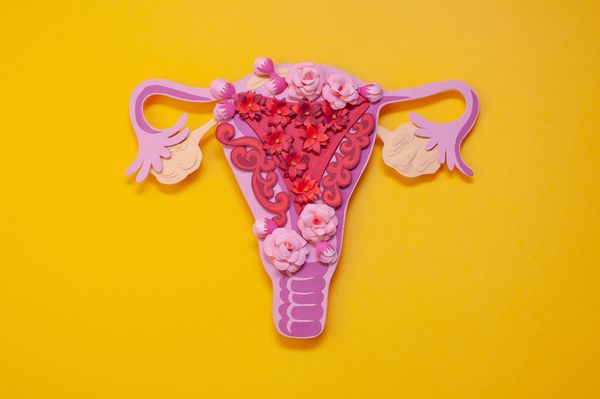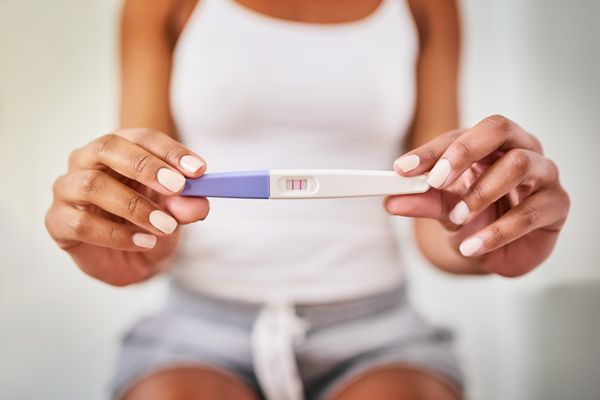Women’s Infertility Medication
Every couple hopes to be blessed with a healthy child. Fertility treatments can help if you struggle to conceive naturally.

Approximately 6% of the total population of married women between the age of 15 and 44 in the USA cannot conceive even after trying for one year. Nearly 12% of women in the USA of age 15 to 44 have difficulties in carrying their pregnancy successfully or even getting pregnant. If you, too, are among those women who are facing problems with their pregnancy or conceiving, you need to consult your gynecologist for medical examination and infertility treatment.
Infertility may result from different physical issues. Your doctor may recommend that you seek treatment if you are unable to conceive or have miscarriages after trying for at least 12 months or more. Women who have an irregular menstrual cycle and those who suffer from some medical condition or fertility problems should seek medical advice when they are trying to get pregnant.
Fertility Drugs
Various types of fertility medications for women are available in the market that promotes the production of eggs in the female ovaries. However, different factors play a role in planning fertility treatments for women. These include age, cause and duration of infertility, and personal preferences for fertility medications. Most times, women may need one or a maximum of two treatments to restore their fertility. But it’s also possible that some women need several fertility treatments to conceive. These treatments are either meant to restore fertility with fertility medications or surgery or use advanced techniques to help women get pregnant.
Here are some commonly used fertility medications that women can take before going for artificial insemination.
Follicle-Stimulating Hormone FSH
Your body naturally produces follicle-stimulating hormone or FSH. It is responsible for maturing one of the many eggs within your ovaries by forming a follicle around that egg. Just like the natural FSH, the follicle-stimulating hormone drug also aids in ovulation. This is used to treat those women who have ovulation problems. They may have working ovaries, but their eggs don’t reach maturity regularly. Women who experience premature ovarian failure should not take these drugs. Your physician may treat you with human chorionic gonadotropin (hCG) before giving follicle-stimulating hormone treatment(https://www.reproductivefacts.org/news-and-publications/patient-fact-sheets-and-booklets/documents/fact-sheets-and-info-booklets/medications-for-inducing-ovulation-booklet/).
There are many forms of FSH treatment available in the USA. Some are approved by the American Society for Reproductive Medicine.
- Urofollitropin lyophilisate (brand name:Bravelle)
- Follitropin alfa lyophilisate(brand name:Follistim AQ and Gonal-F)

Also referred to as Human chorionic gonadotropin, it is a naturally produced hormone in your body that stimulates follicles in any of your ovaries, resulting in mature egg release. Plus, it triggers the production of progesterone hormone in your ovaries which handles several functions, including preparation of the uterus for implantation of the fertilized egg. Doctors often combine the hCG drug with human menopausal gonadotropin (hMG) or clomiphene to trigger ovulation. However, physicians may prescribe it only for women who have functional ovaries.
There are two forms of hCG drug available in the USA and approved by the American Society for Reproductive Medicine (https://www.healthline.com/health/pregnancy/fertility-drugs-men-women#for-women):
- Recombinant human chorionic gonadotropin (r-hCG)(brand name: Ovidrel)
- Human chorionic gonadotropin (hCG) (brand name: Novarel and Pregnyl)
Human menopausal gonadotropin (hMG)
This assisted reproductive treatment is effective for women who have healthy ovaries but unable to produce eggs because of some reason. It’s not suitable for women who experience premature ovarian failure. This fertility drugs’ brand name is Menopur.
Gonadotropin-releasing hormone (GnRH) Antagonists
This infertility treatment may be prescribed in combination with controlled ovarian stimulation (COS) techniques such as in vitro fertilization (IVF). These fertility drugs prevent the spontaneous release of eggs from ovaries and allow proper maturation of eggs to use for IVF (https://www.medicalnewstoday.com/articles/323536#types-of-fertility-drugs). Two common GnRH antagonists available in the USA are the following.:
- Cetrotide acetate (brand name: Cetrotide)
- Ganirelix acetate
Dopamine Agonists
Dopamine agonists may be prescribed for treating hyperprolactinemia condition. This drug reduces the prolactin amount released by the pituitary gland. The following are the dopamine agonists available in the USA
- Bromocriptine (brand name: Parlodel)
- Cabergoline

Compounded Fertility Medications
Finding your happiness is how a family is made. Don’t let struggles to conceive block that dream. Working with your OBGYN doctor, compounding pharmacists can craft exact formulations to help meet your conception prescription needs.
Compounded prescriptions can match your exact fertility solution. Ask our pharmacists if you have any questions.
